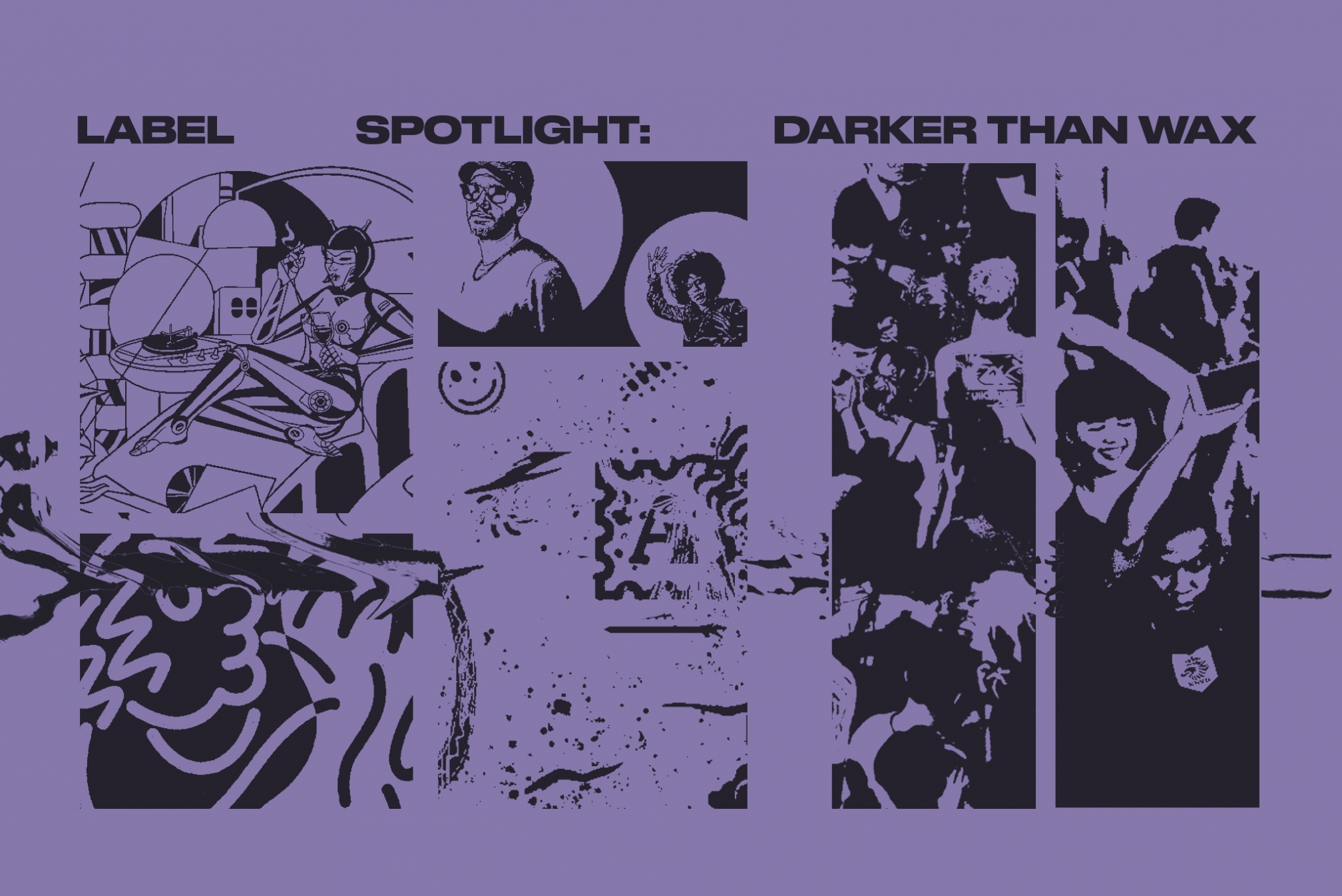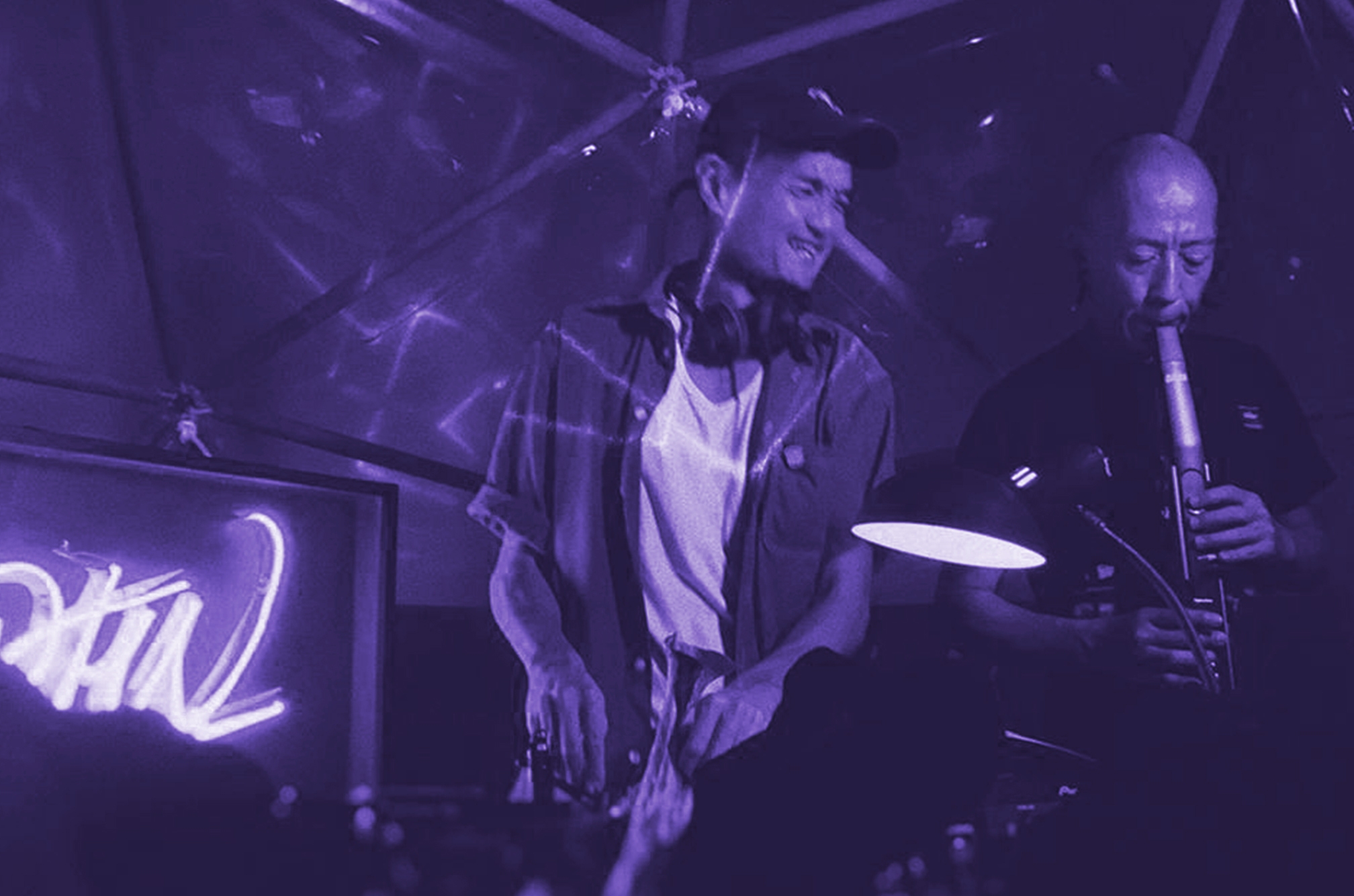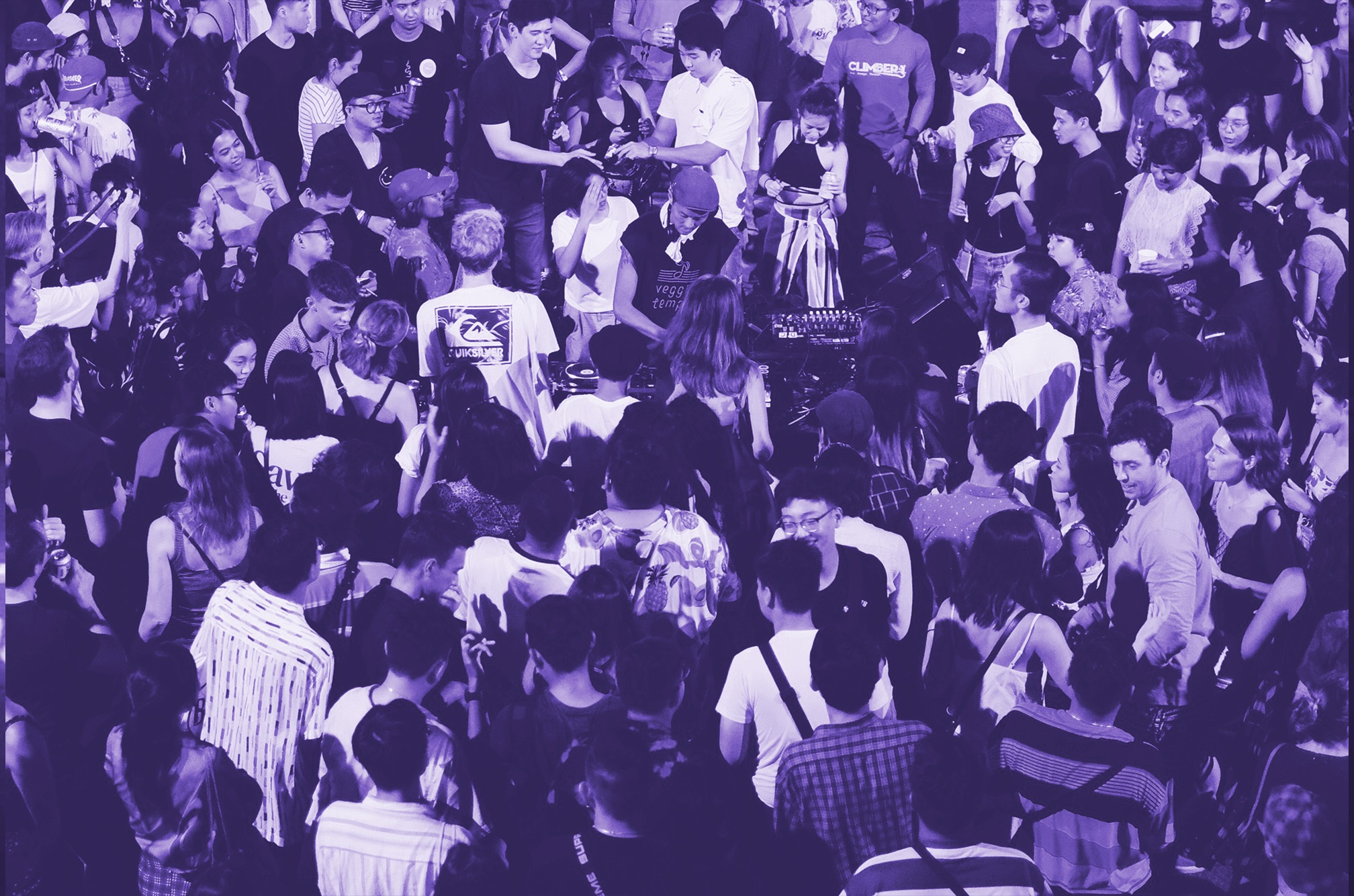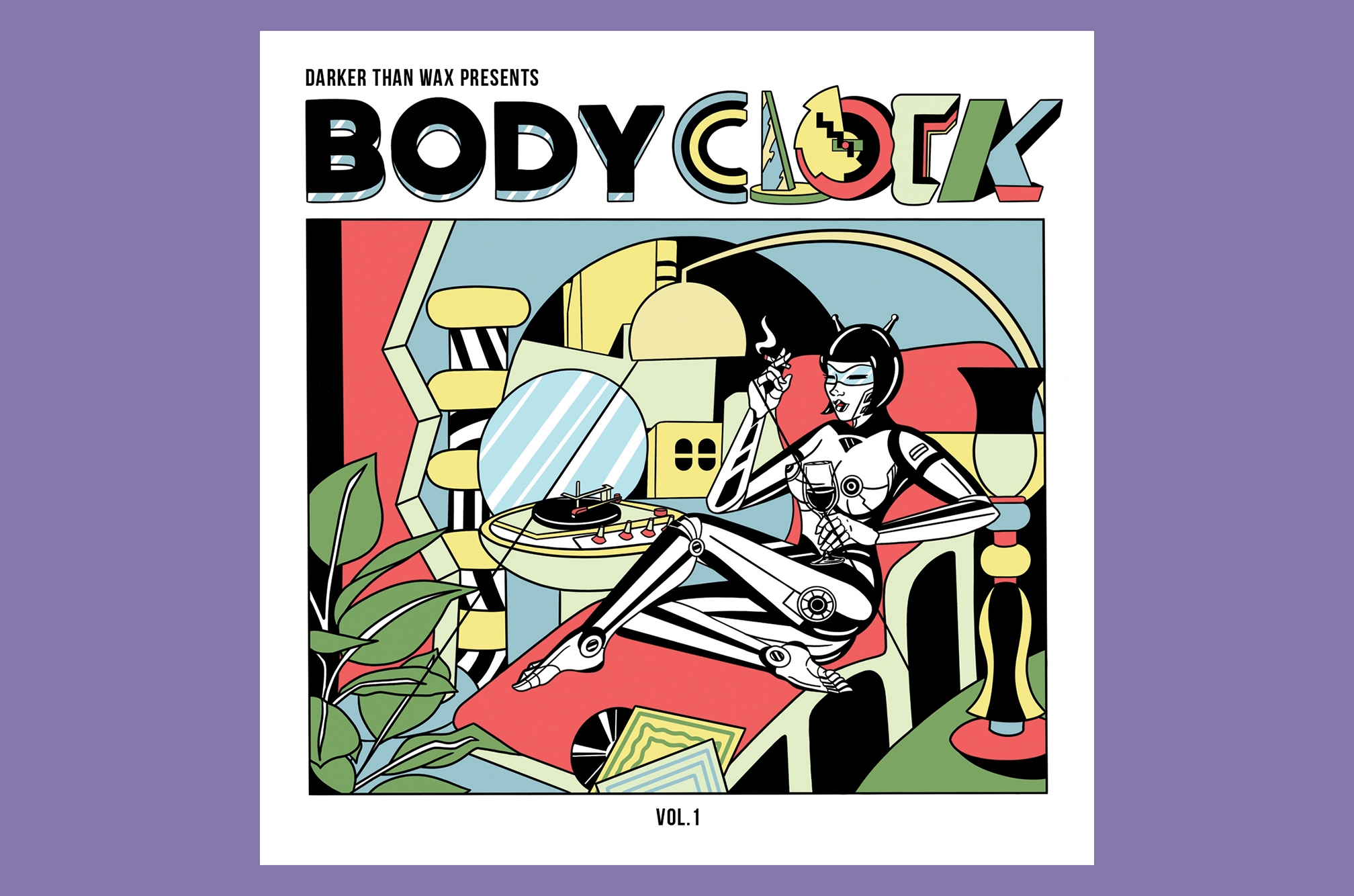 Interviews
Interviews
Label Spotlight: Darker Than Wax & their infinite quest for "the groove that hits the spot"
Dean Chew & Kaye explain how culling the BS is a proven formula for success
Ever-growing wisdom combined with a natural flair for creative collaborations, Darker Than Wax have stood out over the last decade as more than just a record label. Bound by an affinity for borderless grooves, label founders Dean Chew and Kevin Guoh aka Kaye are firmly sewed into the fabric of Singapore’s underground music tapestry, holding the bar high and always raising the roof to create space for newcomers, sound aficionados and like-minded folk to gather. What they’ve built over the last twenty years as friends, as well as for just over a decade as label honchos, is a rather immaculate alliance that Asia’s electronic movement has taken heed from.
The pair have a natural tenacity to overlap without friction — on stage, they perform as Cosa Nostra with Dean DJing and Kevin busting jazzy notes on the saxophone. Backstage, they run Darker Than Wax. Individually, they appraise each other’s sonic style and talent.
The glue that binds them together contains the following ingredients: ambition, free-form structure, eclecticism, leftfield-ism and a dose of we-don’t-give-a-fuck-ery.
It’s a celestial pairing really.
Over the years, they’ve garnered praise from a wide range of global artists including Gilles Peterson, Lefto, Bradley Zero and more whilst at home in Singapore, you can guarantee to find them curating and performing at the city’s most distinguished venues. That hasn’t happened for almost two years now courtesy of the global pandemic, but that hasn’t stopped their hustle from flourishing.
Always planning ahead, they want you to be the first to know about their forthcoming release: 'BODYCLOCK Vol 2', Kaye's debut album 'Distant Dancefloor' which features remixes from Jun Kamoda, Cain and Ricky Razu, and 'Futuro Tumbao' by Kansado.
We sat down with Dean Chew and Kevin Guoh of the globally renowned, Singapore-based imprint, Darker Than Wax, to know a bit more about their A&R process, their thoughts on Southeast Asia’s evolutionary scene and how tough or easy it is to run a successful label business for over ten years.
How did you guys meet?
Dean: “Oh man this goes way back. There was this rather legendary spot called Nox where a lot of the up and coming DJs were hanging out and playing occasional slots. One of the veterans of the scene, Brendon P (who also happens to be like a mentor to me) was playing there regularly, and I used to hang out there like all the time haha. Gradually we clicked and started curated nights together and he invited Kaye to one of the shows — I guess the rest was history.”
Kevin: “We both met through a common friend, veteran DJ Brendon P, who was at that time a resident DJ at Nox in Mhd Sultan. He had ideas for a themed night (I still remember very clearly it was called Case Study) and happened to book us both separately. The music Dean was playing was very intriguing to me at that time so I decided to keep in touch with him. I think he was still studying in Perth back then. We started performing more whenever he came back and well, haven’t stopped since for almost 20 years!”
Where did the name Darker Than Wax come from?
D: “The name is basically a reference to the mentality of a crate digger - to search deeper, to go that one step beyond in the search of a hidden gem, irregardless of genres, categories or classifications. Essentially, DTW is a reflection of that process and spirit."

Did you set out to be a Singaporean label or something more boarderless?
D: “Not consciously per se but way back, Kaye and I used to run this little music platform, a primitive HTML version I might add, called Dance And Soul which hosted a selection of radio shows from all over the world, and arguably, was quite ahead of its time. So to a certain degree, we have always stayed in touch and maintained relationships with DJs, selectors and artists globally, and I have always had this glocal mentality from the get go. Maybe that also transpired into my subconscious and informed my approach with DTW. “
K: “To be honest, we never laid out any kind of road map of what kind of label we wanted to be. It was just a means of getting our own music out by ourselves. We had been passing our demos to a lot of visiting DJs, Most of the times we would be on support duties doing the warm up sets. We got a lot of positive feedback and hit it off with most of them during their short stay in SG. But for some reason, the moment they left Changi Airport, we got ghosted. So if anything it was born out of frustration for me.”
If you could take all DTW artists for a night out in Singapore, where would you take them?
D: ”First spot is definitely my go to hideout in the middle of Chinatown. There’s this secret open air podium in the midst of the old school social housing heartlands that very few are aware of. It’s got a spectacular view of the city skyline, and add to that, a basketball court! We will probably take out a few wines and camp there haha.”
K: “Massive makan session at Maxwell Market or some similar hawker centre, with free flow Tiger Beer and Tiger Beer aunties."

Since DTW’s inception, in what ways has Singapore’s underground scene evolved?
D: “It has been significant, especially in the last few years or so. Obviously social media and the ease of information have also accentuated that, but the scene here has quietly been brewing since the 90s to be honest. The younger generation of artists like Halal Sol, Jarren (aka FZPZ), Nick Bong (aka Bongomann) and Leon Wan (aka Young Spice) are all pushing interesting sounds in their respective paths. Not forgetting experimental labels like Evening Chants who are carving out avenues in the ambient, fourth world side of things — it’s been encouraging to witness this, and obviously, we are constantly on the lookout and have been very involved at the forefront in cultivating the scene.”
K: “I have seen a lot of really talented young cats emerging, like Tim De Cotta, Teo Jia Rong, Aaron James Lee, Weish (dot.gif) are just a few examples. I mean these cats are considered more senior by now but I’m talking about the early 2010s. A lot are more interested in creating electronic music as well, and venues that allowed underground music to flourish. People are now willing to try something other than EDM, hip hop or r ‘n’ b.”
How has that impacted the label’s evolution in music style and A&R?
K: “The first three to four years I’d say were the crucial years in building our fanbase and following. Back then we were releasing a lot of beat music – amalgamations of hip hop, soul and electronica, that kinda vibe. But it has never been our intention to represent only one style of music. We listen to a wide range of music, and want our catalogue to reflect our tastes as well. So we started branching out into different genres. But to answer your question specifically, I don’t think the scene impacted our evolution. We always knew we were gonna wanna represent more and different genres, and not limit ourselves as being a Singaporean or Asian label. If we like the music, end of story. Your age/gender/nationality/etc doesn’t matter.”
D: “Yes, am totally with Kaye. I handle most of the A&R for the label, and it has always been rooted in looking for music that’s diverse and has a certain point of view. Most importantly, it needs to have that groove!"
How many releases do you plan for each year, and what are your fundamental rules for successfully running the label?
K: “Right now I’d say around four vinyl releases a year at least, more if we can afford it, and squeeze in digitals in between wherever we can. I handle the financials for DTW, so naturally my fundamental is always going to be watching our spending. It’s a constant push and pull between saving costs and spending on PR, marketing and ads. Those are necessary but sometimes it’s hard to see the tangibility of them as well. So we need to try and balance both out as much as we can.”
D: “Consistency, work ethics, discipline and time management are very crucial to me, and it has certainly helped with the way I run the label. I handle the overall creative vision for DTW, and its constantly about walking the line between your integrity and malleability.”
From the outset, starting with yourselves as Cosa Nostra, the label has consistently presented artists with a deeper shade of musicality from around the world. Can you let us into both your A&R and submission processes — who and what are you looking for?
D: “It needs to have the groove, that rawness -— and you know you hit the spot when you hear something that just sounds right. But also more importantly, the character of that person plays a huge part too, like how they conduct themselves. We have been extremely lucky that most of our working experiences have been wonderful, but theres always the one or two that’s slightly challenging and sometimes, unpleasant.”
K: “For me it’s got to have that element of soul in the music. That soul, that jazz, that blues, you know? It’s a must for me. After that, from experience, it’s sussing out the personality types of the artist as quickly as possible when we’re in early discussions with them. If I smell a hint of diva, I’m out. I don’t care how good you are. Life is difficult enough, don’t really need someone else to make my life more difficult.”
Can you detail a unique or unexpected experience while procuring an artist for a release?
K: “When we first heard Halal Sol, we all instantly knew we gotta get this kid on board. First time we all got exposed to him was on some SGCR live stream years ago. When we finally hooked up and got closer (he was my mentee for NAC’s 2019 Noise Music Mentorship program, which he subsequently went on to win), I let in that we wanted to release him on DTW. He subsequently admitted that in his earlier years, he was following DTW avidly as well. Full circle!”
Prior to COVID-19, Southeast Asia’s underground scene was undergoing significant growth and diversity through small festivals, adventurous promoters and inventive record labels. How do the times compare pre and post-pandemic for DTW?
D: “Nothing beats being connected with that person right next to you! The energy is irreplaceable!”
K: “Zero comparison. I’m a firm believer that the music has to be experienced in person, with many other people. The vibe and emotions you get from being at an event in the flesh can never be translated onto a screen. Others may have pivoted to presenting what they want to digitally, and we’ve tried as well. But most people in SG don’t really give a shit. I’m just quietly waiting to come back to performing live. We are just hibernating now.”

You’ve worked with a variety of visual artists for the label’s release artwork, and even transformed releases into merchandise. Can you tell us a bit more about your art direction and how that has evolved in tandem with the music?
D: “I come from an architectural background, so a lot of the label’s aesthetics are shaped around the idea of composition, colours, shadows and contrast. I was actually doing a lot of the visuals and artworks in the early days of the label alongside the A&R, and that created a certain foundation and footprint for the label. Overall, there isn’t a particular style guide, but akin to the music, the art needs to possess a certain depth, a point of view and story-telling. While trends are useful in some ways, I rather study the timeless classics and learn from there - its a huge universe of knowledge in itself.”
Given Singapore’s strict and regulatory situation around the pandemic and the lack of means to host events, how has the communication with DTW followers been affected?
D: “Thankfully, we have our weekly and monthly radio shows to maintain that dialogue with our fanbase. Whether its Worldwide FM in the UK, Lot radio in NYC or radio alHara in Occupied Palestine or NORRM radio in Bandung, we have been extremely active on that front. Like many out there, we rely heavily on Instagram to stay in touch with our global followers, and do constantly engage them across a variety of content. It’s never-ending!"
K:”We’ve been doing weekly streams regularly for more than a year now, so that’s where we’re at if peeps wanna come hang out and just listen to music and talk trash. Other than that we also host mixes regularly as well on Mixcloud, and the traditional modes of communication like newsletters and socials.”
Check out Darker Than Wax's Twitch stream here.
Where in the world would you say the majority of the label’s supporters are based? Does this surprise you?
K: "Most of them are actually in USA, Europe and Japan. I don’t think it’s particularly surprising given our sound is not restricted to a certain locale, plus the fact that our distributors are based in Europe."
We’d like your opinion on Asia’s current scene — who are you keeping an ear and eye on, and why?
D: “The scene is getting really strong and multi-layered and frankly, its so hard to catch up now! But off the top of my head, the energy in Vietnam is amazing - so many interesting collectives like Gāy that’s really caught my attention. LAARIA in particular is definitely on my hot list - the guy is so fresh with his unique blend of soul, beats, sleaze funk and new jack swing. And of course, there’s always something bubbling in China -— lots of interesting female producers like Cookie, Cocoonics and IVU pushing the realm of IDM, electronica, dub and techno. Not forgetting the inimitable Noah Li aka Knopha, Zhaodai Club’s Slowcook and South Korea’s boogie captain Mogwaa. Too many to mention!"
Do you have any advice for up and coming label owners?
D: “Be ambitious but also be grounded. Enjoy the process more than goals or achievements — those are just a myth, trust me. When you simply enjoy the process, it will lead you to different places. But above all, BE PATIENT and PUT IN THE TIME.”
K:"Be organised! When we started we were really messy with stuff like accounting and contracting, so it’s difficult to navigate say if we were to get a sync deal, but don't chase trends. Stick to your guns. While we never had a road map for the label in a business sense, we had a very strong musical identity that we knew we wanted to represent, that was reflective of our tastes. With that firmly in place, it has helped in things naturally falling into order.”
Lastly, tell us about the mix you’ve put together for us?
K & D: “This mix is an encapsulation of the music from our discography for the past decade or so the early beat classics, some b-sides, some unreleased bits that never saw the light of day, current and forthcoming nuggets - all rolled into 90 mins of pure groove for your enjoyment. I hope this gives the listeners a glimpse into our humble abode. Enjoy!”


